Serving 3,190 students in grades 7-12, Cedar Valley High School ranks in the bottom 50% of all schools in Utah for overall test scores (math proficiency is bottom 50%, and reading proficiency is bottom 50%).
The percentage of students achieving proficiency in math is 22% (which is lower than the Utah state average of 39%). The percentage of students achieving proficiency in reading/language arts is 44% (which is higher than the Utah state average of 43%).
The student:teacher ratio of 28:1 is higher than the Utah state level of 21:1.
Minority enrollment is 24% of the student body (majority Hispanic), which is lower than the Utah state average of 29% (majority Hispanic).
Quick Stats (2025)
- Grades: 7-12
- Enrollment: 3,190 students
- Student:Teacher Ratio: 28:1
- Minority Enrollment: 24%
- Graduation Rate: 90% (Top 50% in UT)
- Overall Testing Rank: Bottom 50%
- Math Proficiency: 22% (Btm 50%)
- Reading Proficiency: 44% (Top 50%)
- Science Proficiency: 33% (Btm 50%)
- Source: National Center for Education Statistics (NCES), UT Dept. of Education
School Overview
Cedar Valley High School's student population of 3,190 students has grown by 37% over five school years.
The teacher population of 114 teachers has grown by 21% over five school years.
Grades Offered
Grades 7-12
Total Students
3,190 students
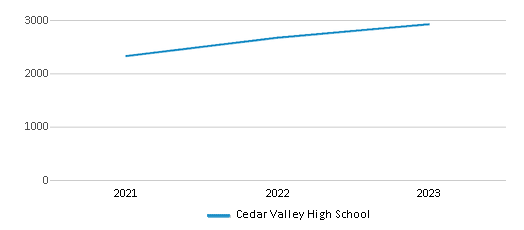
Gender %
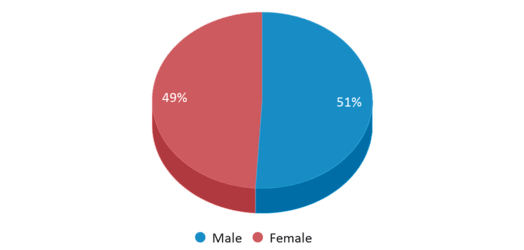
Total Classroom Teachers
114 teachers
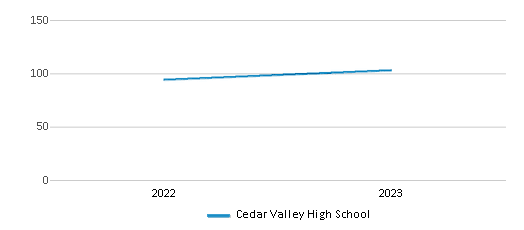
Students by Grade
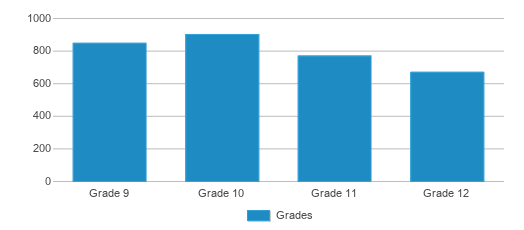
School Rankings
Cedar Valley High School ranks within the bottom 50% of all 975 schools in Utah (based off of combined math and reading proficiency testing data).
The diversity score of Cedar Valley High School is 0.40, which is less than the diversity score at state average of 0.46. The school's diversity has stayed relatively flat over five school years.
Overall Testing Rank
#644 out of 975 schools
(Bottom 50%)
(Bottom 50%)
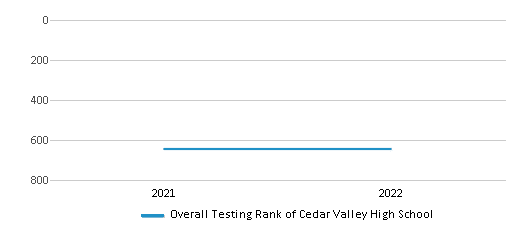
Math Test Scores (% Proficient)
(20-21)22%
39%
Reading/Language Arts Test Scores (% Proficient)
(20-21)44%
43%
Science Test Scores (% Proficient)
(20-21)33%
45%
Student : Teacher Ratio
28:1
21:1
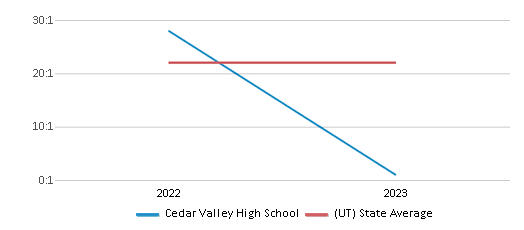
American Indian
n/a
1%
Asian
n/a
2%
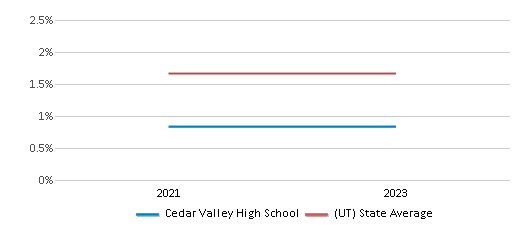
Hispanic
16%
20%
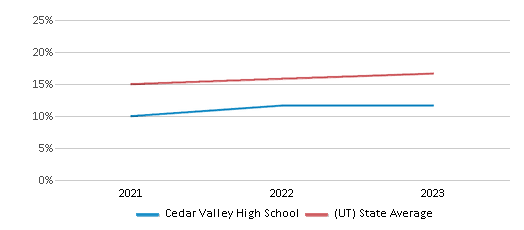
Black
1%
1%
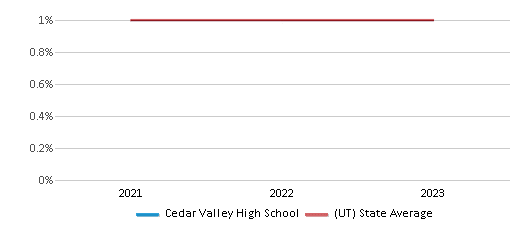
White
76%
71%
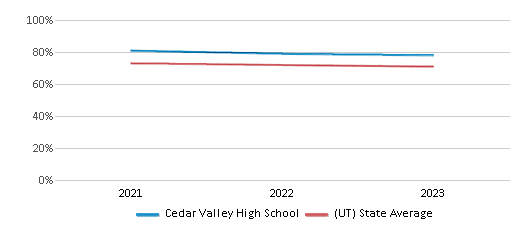
Hawaiian
2%
1%
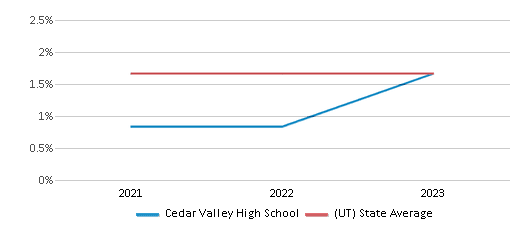
Two or more races
5%
4%
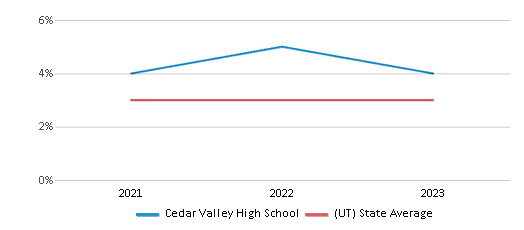
All Ethnic Groups
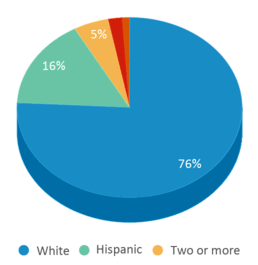
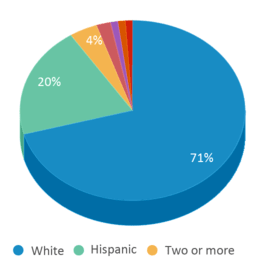
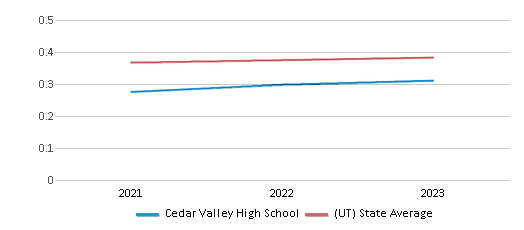
Graduation Rate
90%
88%
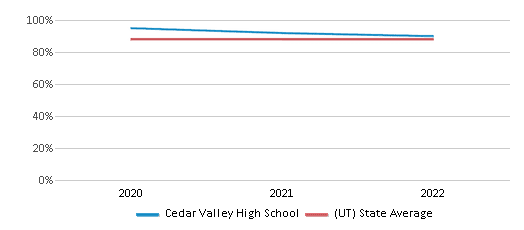
Eligible for Free Lunch
13%
24%
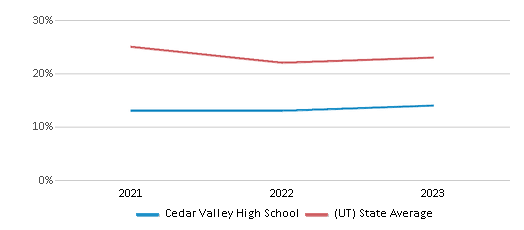
Eligible for Reduced Lunch
6%
6%
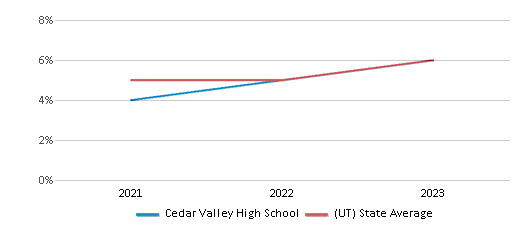
School Statewide Testing
School District Name
Source: National Center for Education Statistics (NCES), UT Dept. of Education
Profile last updated: 02/09/2025
Frequently Asked Questions
What is Cedar Valley High School's ranking?
Cedar Valley High School is ranked #644 out of 975 schools, which ranks it among the bottom 50% of public schools in Utah.
What schools are Cedar Valley High School often compared to?
Cedar Valley High Schoolis often viewed alongside schools like Westlake High School by visitors of our site.
What percent of students have achieved state testing proficiency in math and reading?
22% of students have achieved math proficiency (compared to the 39% UT state average), while 44% of students have achieved reading proficiency (compared to the 43% UT state average).
What is the graduation rate of Cedar Valley High School?
The graduation rate of Cedar Valley High School is 90%, which is higher than the Utah state average of 88%.
How many students attend Cedar Valley High School?
3,190 students attend Cedar Valley High School.
What is the racial composition of the student body?
76% of Cedar Valley High School students are White, 16% of students are Hispanic, 5% of students are Two or more races, 2% of students are Hawaiian, and 1% of students are Black.
What is the student:teacher ratio of Cedar Valley High School?
Cedar Valley High School has a student ration of 28:1, which is higher than the Utah state average of 21:1.
What grades does Cedar Valley High School offer ?
Cedar Valley High School offers enrollment in grades 7-12
What school district is Cedar Valley High School part of?
Cedar Valley High School is part of Alpine School District.
School Reviews
5 11/10/2021
Love the school. admins are great. teachers and students the are too!
4 12/31/2020
Overall, I like this school, but when I went to use the bathroom after school one day (I was having a particularly difficult day feces wise) the toilet clogged wayyy to easily. Not to mention the bathroom smelled horrible after, there was no fabreeze on hand. Along with all of that, someone walked in after and had the audacity say who brought their cow to school? Im not very offended, just a little hurt. And as I say to my kids: I''m not upset, I''m just disappointed
5 11/19/2020
This school is absolutely AMAZING! I feel so supported by the parents, administrators, and the community. We have such a beautiful building to conduct our teaching in, and the students are so wonderful. The faculty here work incredibly hard to make sure that no one is forgotten, and that curriculum is phenomenal. Students learn so much while attending school here. I feel so blessed to be able to work here and to be provided with such amazing support.
2 11/19/2020
My daughter attends this high school, and I have never seen a school that is as caring, warm, and loving for students. The teachers and admin truly care and do an excellent job in showing that care. I am so thankful my daughter attends this amazing school! Additionally, the facilities are beautiful and well kept, the administrators and counselors are very approachable, and I am very happy with the quality of education she is receiving.
Review Cedar Valley High School. Reviews should be a few sentences in length. Please include any comments on:
- Quality of academic programs, teachers, and facilities
- Availability of music, art, sports and other extracurricular activities
Recent Articles

What Is A Charter School?
Explore the world of charter schools in this comprehensive guide. Learn about their history, how they operate, and the pros and cons of this educational innovation. Discover key facts about charter schools, including admission policies, demographics, and funding, as well as what to look for when considering a charter school for your child.

10 Reasons Why High School Sports Benefit Students
Discover the 10 compelling reasons why high school sports are beneficial for students. This comprehensive article explores how athletics enhance academic performance, foster personal growth, and develop crucial life skills. From improved fitness and time management to leadership development and community representation, learn why participating in high school sports can be a game-changer for students' overall success and well-being.

February 05, 2025
Understanding the U.S. Department of Education: Structure, Impact, and EvolutionWe explore how the Department of Education shapes American education, from its cabinet-level leadership to its impact on millions of students, written for general audiences seeking clarity on this vital institution.









